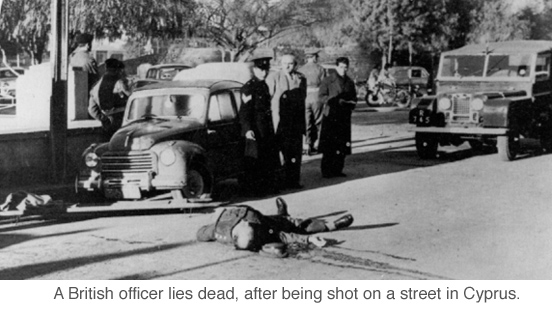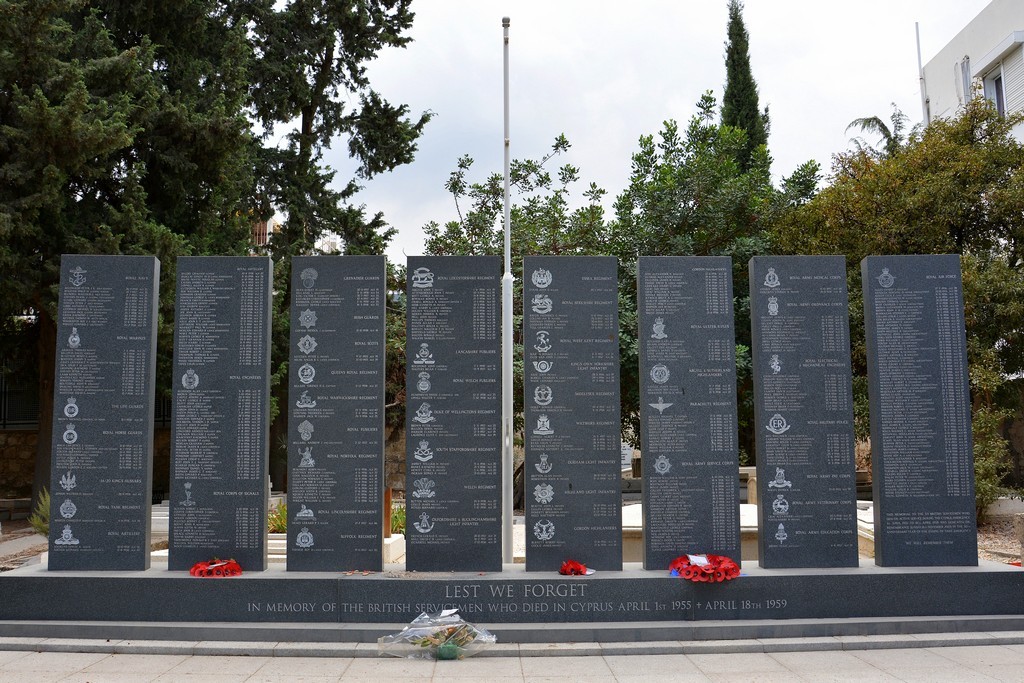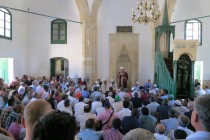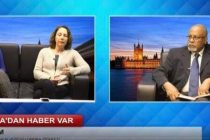Representatives of the Queen have been ordered to stay away from the unveiling of a memorial to 19 British policemen gunned down in Cyprus during the troubles. The ban has angered serving officers, relatives and veterans.
The British High Commissioner for Cyprus, Mr. Ric Todd bluntly informed TRNC Royal British Legion officials that he will not be attending their November 8th ceremony. That remains the position, despite protests to the Foreign and Commonwealth Office made this week by peers and MPs.
Even Sir Hugh Orde, former Chief Constable of Northern Ireland and now Patron of the Police Roll of Honour Trust, the charity sponsoring the memorial, has been told he may only attend on condition that he leaves his uniform and medals at home. No other uniforms are being allowed at the unveiling.
The snub follows pressure from the Greek Cypriot authorities who claim that the slightest sign of Royal involvement in the ceremony would be tantamount to acknowledging the existence of the Turkish Republic of Northern Cyprus, which they claim is “illegal”, and therefore cannot be allowed any form of diplomatic recognition.
To date, only Turkey recognises the TRNC. It was Turkey’s armed intervention in 1974 which created a safe haven for Turkish Cypriots in northern Cyprus after they had been subjected to ten years of genocide. The TRNC was eventually declared under President Rauf Denktaş in 1983 after nearly a decade of talks with Greek Cypriots had failed to unite the island. The Greek Cypriots continue to claim they are the sole authority on the island, even though this goes directly against the constitution and the international treaties governing the Republic of Cyprus.
 British acceptance of the Royal ban has caused outrage in police and military circles, who see it as cowardly and disrespectful to the men who laid down their lives for their country – and not just British lives. The Memorial also lists 25 Turkish Cypriots, 18 Greek Cypriots and 1 Maronite who were also shot by Greek Cypriot EOKA terrorists fighting for Enosis (union with Greece) between 1955 and 1960.
British acceptance of the Royal ban has caused outrage in police and military circles, who see it as cowardly and disrespectful to the men who laid down their lives for their country – and not just British lives. The Memorial also lists 25 Turkish Cypriots, 18 Greek Cypriots and 1 Maronite who were also shot by Greek Cypriot EOKA terrorists fighting for Enosis (union with Greece) between 1955 and 1960.
When asked to comment on the issue, the Minister for Europe, The Rt Hon David Lidington MP said this week: “Anniversaries are a politically sensitive issue in Cyprus, and we consider British Government participation carefully.”
British Legion and Police Roll of Honour officials involved are being diplomatically tight-lipped about the whole affair, but other old Cyprus hands are seething.

Lord Maginnis, a veteran of Ulster’s stormy politics and previously an Army Major who served in Northern Ireland for 12 years, told T-VINE this week:
“When, in 2009, I insisted that the British High Commissioner in Cyprus [Peter Millet] attend the unveiling of the British/Cyprus memorial to our 371 servicemen who died between 1956 and 1959, the Greek Cypriots boycotted his office until he was replaced. But that is no excuse for either this or the previous Government’s blatant cowardice and capitulation to the successors of EOKA and EOKA-B. It makes me angry and so ashamed.”
He continued, “The recently-released diaries of General Grivas, the genocidal head of EOKA, put next week’s Royal ban in perspective: it comes as a direct result of the inter-community bloodshed he created. His evil deeds cast a long shadow.”
Main photo of British War Memorial in Girne by Richard Flagg. In 2009, Greek Cypriot pressure for the British High Commissioner not to attend a wreath-laying service at the Memorial failed





